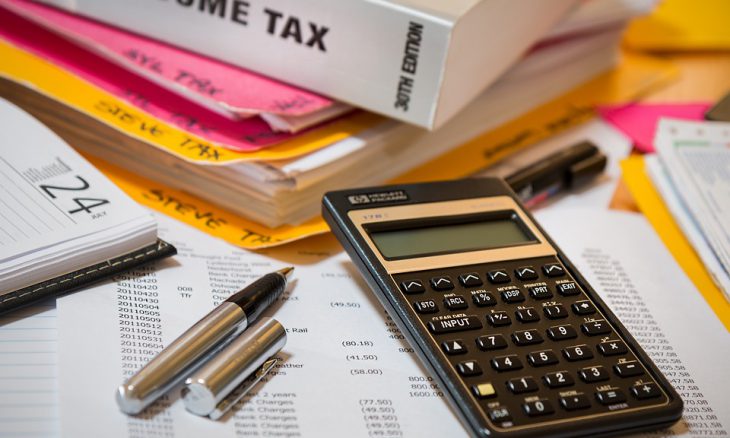How do government actions with taxes shape public trust, audits, and economic stability?
PRAY FIRST for those in authority to act with integrity, fairness, and compassion and for us to engage with these issues thoughtfully and wisely, seeking to understand rather than simply react.
The Lord is good, a stronghold in the day of trouble; He knows those who take refuge in Him – Nahum 1:7
Last week, we looked at how tax increases and decreases directly impact the economy in the Paying Taxes to fund the Nation. In this second look, we dive into how the government must balance its decision-making with the emotional responses that they may elicit from the public. Public perception of tax increases is usually mixed; some Americans believe taxes are necessary to fund essential services, while others feel they are rising too quickly and disproportionately affect certain people. Recent surveys indicate that about 60 percent of Americans believe the current tax system unfairly benefits the wealthy, while only 20 percent feel that tax hikes are necessary and properly distributed. This divide reflects the larger conversation about tax fairness and government accountability.
Tax Use
There is a growing distrust among many Americans regarding how tax revenue is used and whether tax hikes are being fairly implemented. With concerns over government waste and inefficiency, many citizens feel the taxes they pay are not being effectively utilized. Additionally, the perception that tax increases are primarily aimed at higher-income groups while the middle class bears the brunt of the economic impact has led to increased frustration.
Collecting Taxes
In recent years, the IRS has ramped up its auditing efforts, especially among high-income individuals and corporations. This increase is part of an effort to close the tax gap— the difference between taxes owed and taxes collected. While some see this as a necessary step to ensure that everyone pays their “fair share,” others argue that the IRS’s focus on audits may be overreaching and burdensome, especially for small businesses.
It is important to understand that the IRS does not have a role in setting tax rates. The IRS’s primary function is enforcement and collection—ensuring that individuals and businesses comply with tax laws set by Congress. While the IRS plays an essential role in maintaining the integrity of the tax system, its increased focus on audits has caused some concern among Americans, particularly considering reports of more frequent audits on middle- and lower-income individuals.
Economic Consequences
If taxes continue to rise without proportional wage increases, there could be long-term economic consequences, particularly for small businesses and entrepreneurs. Rising taxes could lead to reduced investments in business development and hiring, further slowing economic growth. Also, consumer confidence could take a hit, with fewer people willing or able to invest in large purchases, such as homes and/or vehicles.
At the state and local level, the impact of rising taxes is felt most acutely in regions where the cost of living is already high. States such as California, New York, and Illinois, which have higher tax rates and larger populations, may experience slower economic growth if taxes continue to rise. These regions are also likely to see a higher cost of goods and services, further straining local economies.
Addressing Taxes
There are several bipartisan proposals directed at addressing tax changes while ensuring that essential public services are adequately funded. These include simplifying the tax code, closing loopholes for corporations and high-income individuals, and expanding tax credits for middle- and lower-income families. While these proposals offer potential solutions, political divisions make it challenging to implement comprehensive tax reforms.
The key challenge for U.S. policymakers moving forward will be balancing the need to raise revenue through taxes with the goal of promoting economic growth and prosperity for all citizens. This balance requires careful consideration of the economic pressures facing middle- and lower-income Americans, as well as the long-term sustainability of government programs. While the concept of replacing income tax with tariffs has been suggested, it faces many hurdles, and its complexities warrant a separate discussion.
Why It Matters and How We Can Respond
As tax policies continue to evolve, it is essential for both citizens and policymakers to strike a balance between raising revenue and promoting economic growth. Understanding the long-term consequences of tax increases on the economy, small businesses, and households is crucial to maintaining stability and growth.
We are called to care about issues that affect the well-being of our neighbors. When taxes become disproportionately burdensome, it can lead to greater inequality. Therefore, our responsibility as Christians extends to advocating for systems that do not exploit the vulnerable.
HOW THEN SHOULD WE PRAY:
— Pray for those in positions of power and leadership, that they would govern with integrity and transparency, and be mindful of their responsibilities to the public by making just and fair decisions. Better is a little with righteousness than great revenues with injustice. Proverbs 16:8
— Pray for God’s peace and unity in our communities, especially during discussions about taxes, the economy, and government policy. Finally, all of you, have unity of mind, sympathy, brotherly love, a tender heart, and a humble mind. 1 Peter 3:8
CONSIDER THESE ITEMS FOR PRAYER:
- Pray for wisdom to be given to the leaders and government officials responsible for managing taxes and the economy.
- Pray for open and honest communication between government leaders and the citizens they serve.
- Pray for all Americans to approach each other with kindness and understanding, even when we disagree.
- Pray for God’s Peace to be in the hearts of those feeling the weight of rising costs and financial pressures.
Sources: Internal Revenue Service, U.S. Department of the Treasury, Gallup, Congressional Budget Office (CBO), Pew Research Center, Bureau of Labor Statistics (BLS), National Taxpayers Union Foundation, Tax Foundation









